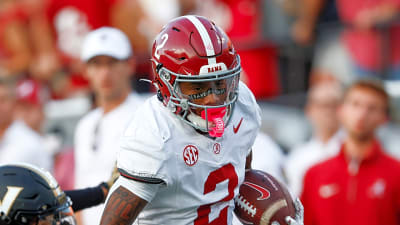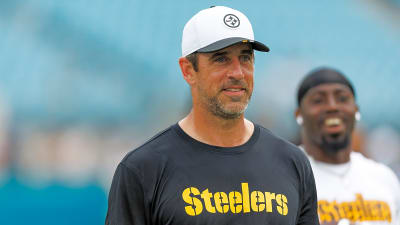
The fallout from the NCAA's punishment against the Michigan Wolverines for the sign-stealing saga continues as Week 1 rapidly approaches. Michigan was hit with a handful of fines and show causes, but largely escaped any notable losses compared to what we've seen from the NCAA in past scandals. Former Ohio State and Florida head coach Urban Meyer made it clear what he thinks about Michigan being fined and avoiding a bowl ban.
He related to the Wolverines' situation through his own real-life experience when he replaced Jim Tressel as the Buckeyes' head coach after Tattoogate. Seeing Michigan get docked some recruiting contact hours and lose some money is a sign that the NCAA is no longer a behemoth to be reckoned with when violating rules.
"In December of 2011, I had to stand in front of a group of seniors and tell them they were not allowed to play in a bowl or championship game in their final year of college football for something they had nothing to do with. One of the most difficult things I've ever done. That same group went 12-0 and were unable to play for the National Championship of college football.
The recent NCAA ruling to not punish players that weren't involved is correct. However, this ruling also proves that the NCAA as an enforcement arm no longer exists," Meyer said on The Triple Option podcast.
Urban Meyer on Michigan’s penalties and NCAA’s power.
— The Triple Option (@3xOptionShow) August 20, 2025
Complete breakdown in today’s episode. pic.twitter.com/STbNRT7ITn
In 2011, Ohio State University's football program faced severe consequences due to NCAA infractions, resulting in a postseason ban and significant penalties. The scandal, often referred to as "Tattoogate," centered on players, including star quarterback Terrelle Pryor, receiving improper benefits. Players exchanged memorabilia, such as jerseys and rings, for tattoos and cash, violating NCAA rules on amateurism. These infractions occurred under head coach Jim Tressel, who was aware of the violations but failed to report them, compounding the issue.
The NCAA investigation revealed a lack of institutional control and failure to monitor compliance. Ohio State self-reported the violations in December 2010 after discovering the issue, but the damage was done. Tressel resigned in May 2011, and the program faced a one-year postseason ban for the 2012 season, preventing participation in a bowl game despite a 6-7 record in 2011. The university also vacated all wins from the 2010 season, including a Sugar Bo wl victory, and accepted a reduction of three scholarships over three years.
The scandal tarnished Ohio State’s reputation, highlighting ethical lapses under Tressel’s leadership. It led to significant changes, including the hiring of Urban Meyer as head coach in 2012. The incident remained a cautionary tale about compliance and oversight in college athletics, underscoring the NCAA’s strict stance on improper benefits and the consequences for failing to uphold regulations, until this slap on the wrist against Michigan.
More must-reads:
- CFB Week 0 winners, losers: Fourth-down decisions loom large in ranked Big 12 showdown
- No. 22 Iowa State picks up where it left off in win over rival No. 17 Kansas State
- The '2024-25 NFL rushing touchdown leaders' quiz
Breaking News
Trending News
Customize Your Newsletter
 +
+
Get the latest news and rumors, customized to your favorite sports and teams. Emailed daily. Always free!








